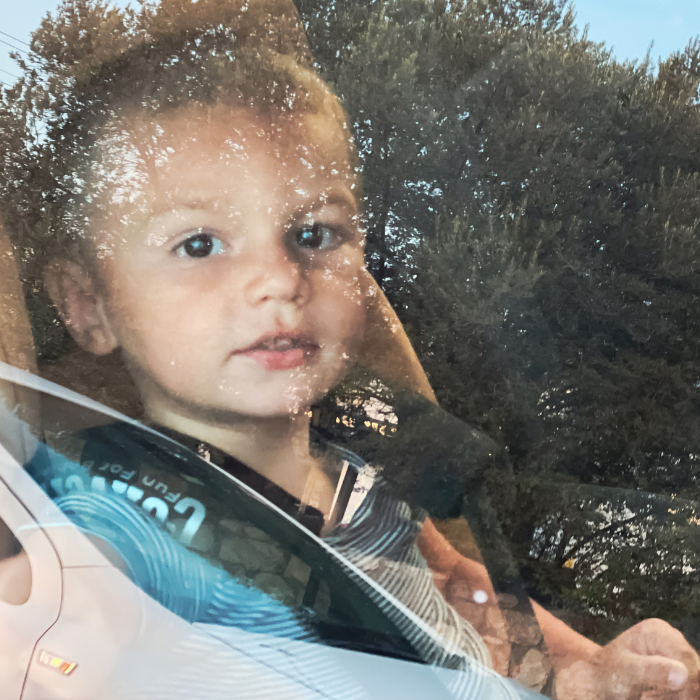The habits you set up for your children last a lifetime and this includes eating habits and activity levels. Ditch the junk in your child’s diet and help them choose nutritious, filling foods to properly fuel their growing bodies. Couple this with plenty of fun-filled daily activity, and your child will thank you well into their adult years.
The number of kids in New Zealand who are overweight or obese has increased alarmingly over recent decades. The latest figures show one in five in the 2–14 age group to be overweight and a further one in 12 to be obese. The good news is that the ideal time to start developing good habits is during childhood. Whether or not your child is currently overweight, a healthy diet and lifestyle will help to promote optimal health and wellbeing. In fact, it’s a good opportunity to have a look at the diet and lifestyle of the whole family, and to think about cooking and eating healthier meals together and getting more involved in fun-filled physical pursuits.
is my child overweight or obese?
As parents, we’re not always the best judge of whether our children are overweight. One New Zealand study found that parents consistently underestimated their child’s weight. If you have any concerns at all in this respect, the best person to speak to is your GP. It is important that growth and development are not compromised in children so, before taking any action to remedy a weight problem, do talk to a health professional about appropriate foods and activity for your child.
why worry?
In the longer term, being obese can lead to a number of serious health problems, such as type 2 diabetes, high blood pressure and raised cholesterol levels. There are also increased risks of asthma and joint problems. Of particular concern among children is possible psychological distress, which can manifest as low self-esteem, depression and body image dissatisfaction. Obese children often become obese adults.
tackling weight problems in children
The main cause of overweight and obesity is energy imbalance; in other words, eating more calories than are burned up through exercise. So we need to take a good look at exactly what our kids are eating and what sort of activities they’re undertaking.
It’s never too soon to instill the right habits in children and you can set your children on the right path for life-long good health by promoting active play, discouraging sedentary activities, and providing a good healthy diet.
the right diet
It is important to never severely restrict a child’s food intake and you should never put a child on a ‘strict diet’. Children need a range of nutrients to grow and develop properly. They should be offered a healthy diet low in fat, sugar and salt, and including wholegrain cereals, fruits and vegetables, as well as lower-fat protein foods.
It is important that healthy eating is adopted by the whole family. Eat together as a family and make meal times relaxed and enjoyable. Providing a healthy diet needn’t mean depriving your children of their favourite foods. By buying good quality ingredients and preparing foods yourself, you can produce healthy versions of manufactured or takeaway foods that might have traditionally contained high levels of fat and salt – kebabs, burgers, pizzas, chips, for example.
When thinking about specific foods to give your little ones, remember that very young children need a nutrient dense diet and shouldn’t be given very low fat, high fibre foods. For example, give full fat milk to children under-2, and move towards lower-fat milks after this age, as long as they are eating well.
physical activity
There has been a decrease in physical activity in recent years: we are all using cars more often, walking less, using escalators and lifts. At the same time, there has been an increase in sedentary leisure activities such as watching TV and DVDs, playing computer games, and using the internet.
Guidelines for children aged 5–18 years recommend exercising for at least 60 minutes each day, but start small and build up slowly. There are lots of ways to encourage an increase in kids’ activity:
- Go for bike rides together as a family.
- Play in the garden.
- Go for family walks.
- Play at the beach or in the local park.
- Attend a dance class.
- Go swimming – even young babies and toddlers can enjoy the water.
- Limit out-of-school sedentary activities, such as watching TV, to less than 2 hours a day. There’s no time like the present, so why not start getting your family involved in some extra activities straight away.
If you are concerned about your children’s diet and health, or have any specific questions, you should talk to your doctor or dietitian in the first instance
practical tips
- Provide three healthy meals a day at regular times, and offer healthy snacks to younger children or if hungry.
- Involve children in growing, shopping and cooking food as soon as they are old enough.
- Always provide a healthy breakfast to start the day, such as porridge, eggs, wholegrain toast. Cereals and milk are good options, but avoid high-sugar varieties.
- Limit foods containing high levels of fat, salt and sugar to very occasional treats.
- Offer milk or water to drink. Limit fruit juice, cordial, high-sugar fizzy drinks and sports drinks.
- Avoid using foods as rewards or to comfort children, instead give positive attention and hugs, or non-food treats.
- Keep foods that children should be avoiding out of the house altogether, especially if they are old enough to help themselves.
Amanda Johnson is a Kapiti-based mum of two and private practice registered dietitian. She advises people of all ages with a wide range of special dietary needs. www.kiwinutrition.co.nz








